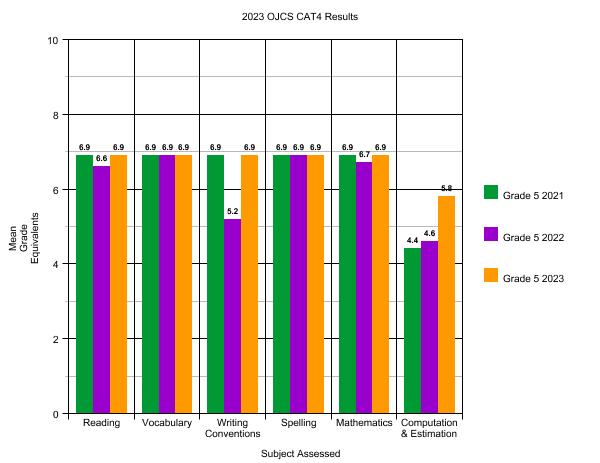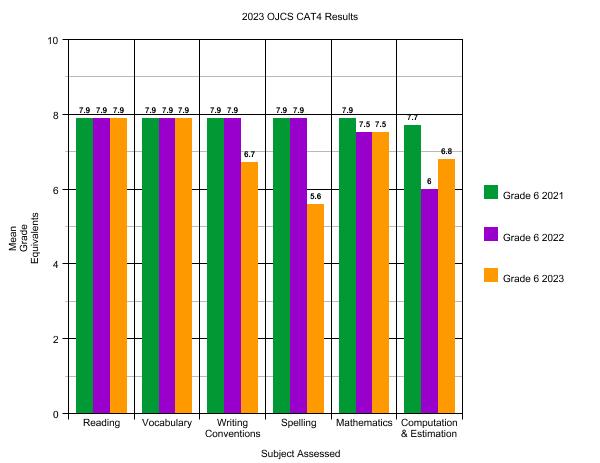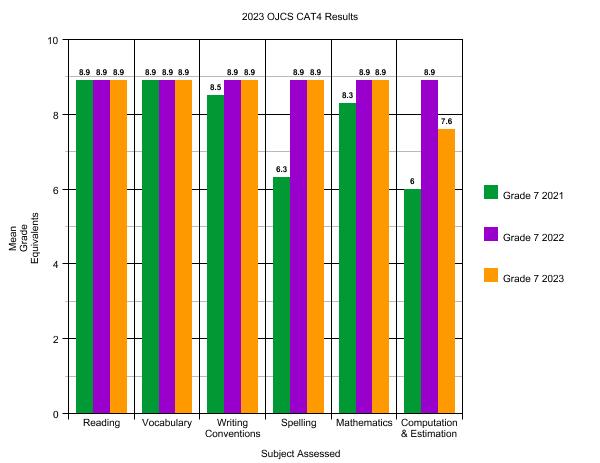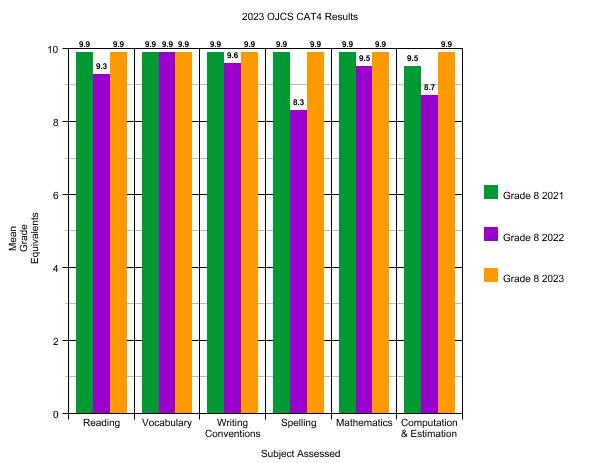Here are the words I shared with Kitah Alef this morning in celebration of their Kabbalat Ha’Siddur:
One of the most profound gifts we can give our children is the sense of being part of something greater than themselves. The Hebrew word “siddur” comes from the root samech-dalet-reish, meaning “order.” The siddur represents the structured prayers that have connected generations of Jews throughout history. In the act of teaching our children to pray in Hebrew, we are linking them to a chain that stretches back to the beginning of the Bible and forward to future generations. Each day we do tefillah we help make l’dor v’dor a reality…
The events of October 7th have left an indelible mark on our community and our sense of security. In such times, the importance of community and the shared rituals that bind us become even more vital. The Torah teaches us, “And you shall teach them diligently to your children” (Deuteronomy 6:7). This mitzvah underscores our responsibility to pass down our traditions and values. Our act of giving these siddurim to our children today is more than a ceremony; it is a reaffirmation of our commitment to Jewish continuity and resilience.
Each time we gather as a community to celebrate our traditions, we engage in a public act of Judaism that is itself a form of prayer. By showing up, by being present and publicly Jewish, we answer our own prayers for a shared destiny of meaning. We demonstrate to our children that Judaism is not just a private faith, but a public declaration of who we are and what we stand for. Each act of Jewish learning and each celebration we share is a thread woven into the fabric of our collective Jewish identity.
Each day, our children present us – their parents and their teachers – with an opportunity to secure the Jewish future through our partnership. For parents, this is the sacred obligation we take on when deciding to have children. For teachers and schools, this is the holy task we are entrusted with when parents take the leap of faith to provide their children with a Jewish education. It is a responsibility that we do not take lightly or for granted. It is why a Kabbalat Ha’Siddur – why a celebration of receiving a siddur gifted by the school, decorated by the parents, and instructed by the teachers is so appropriate to mark this stage of our journey.
One of our school’s North Stars is that “we are all on inspiring Jewish journeys,” and the Kabbalat Ha’Siddur is just the next stop on a journey that, for many, began together under the chuppah on the first day of Kindergarten. My prayer for this class is that in the same way that the siddur we give them today is not a trophy to be admired on a shelf, but a tool to be used for discovery and meaning. Let today’s simchah not simply be an oasis of Jewish joy in a desert of a Jewish year, but confirmation of our collective indomitable spirit and a commitment to celebrate the next stop and the stop after that in the extraordinary and unpredictable Jewish journey of this remarkable group of children and families.
Ken y’hi ratzon.

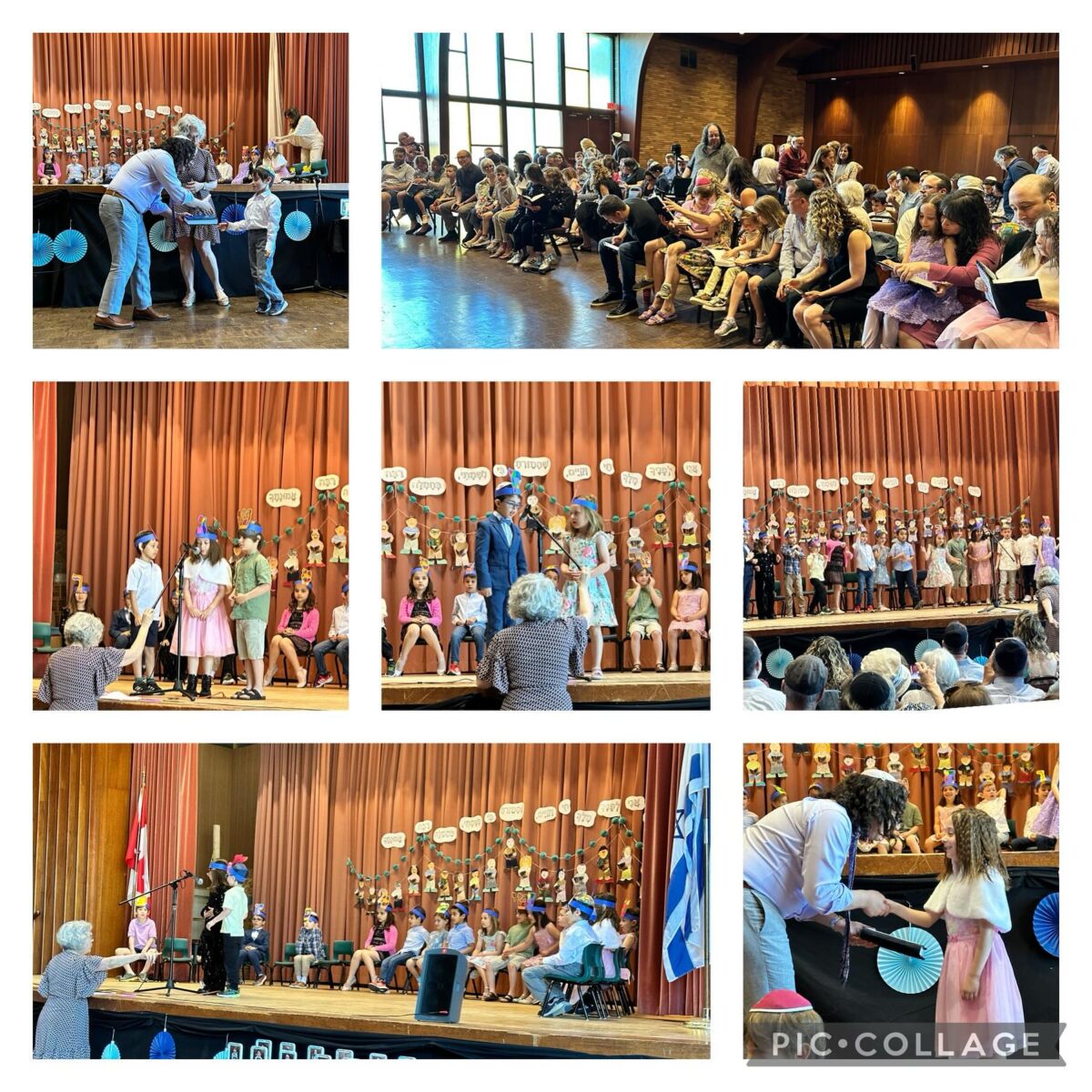




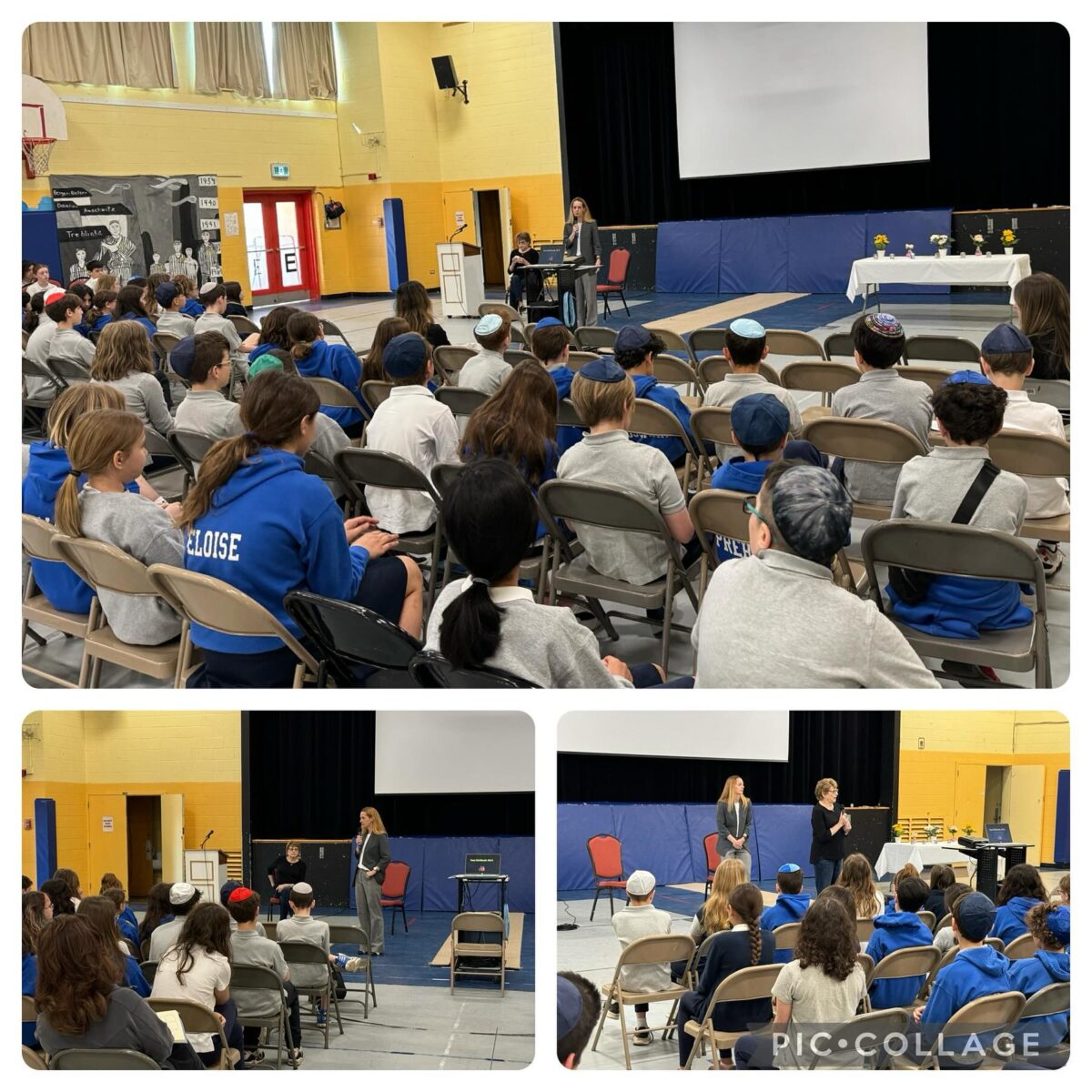

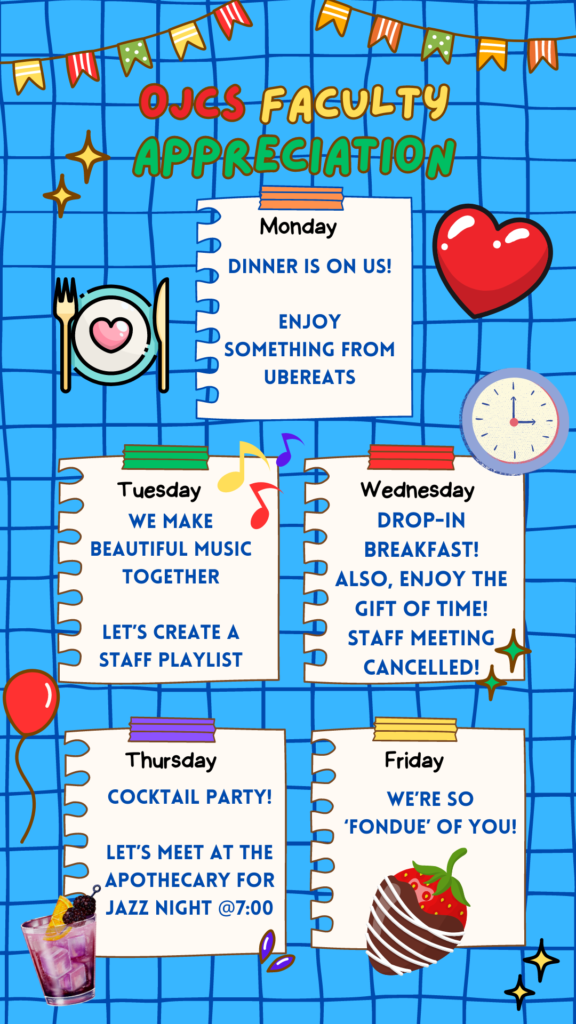

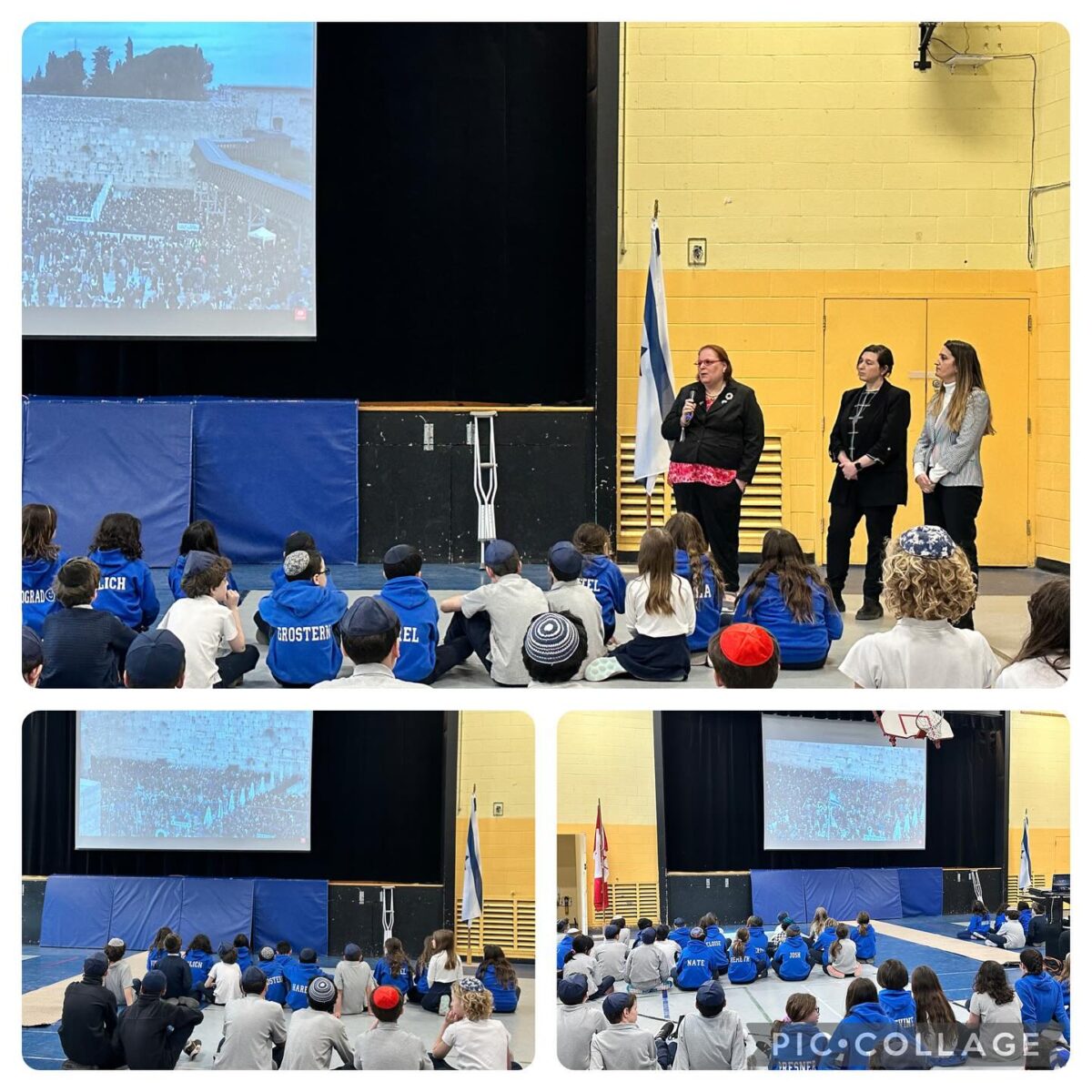
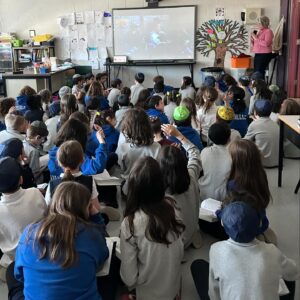 On Thursday, coinciding with the Fast of Esther, our school hosted a variety of dignitaries and staff from our country’s Israeli Embassy in order to participate in the Worldwide Kriyat (Recitation of) Shema. Our older students gathered in the Gym to watch the livestream from Jerusalem and to participate; younger students gathered in classrooms or simply paused at 11:30 AM to add their voices to the global Jewish voice for unity. It was brief and it was heartbreaking, but it was also cathartic and, as has been the case throughout these months, it does feel good to be able to do something.
On Thursday, coinciding with the Fast of Esther, our school hosted a variety of dignitaries and staff from our country’s Israeli Embassy in order to participate in the Worldwide Kriyat (Recitation of) Shema. Our older students gathered in the Gym to watch the livestream from Jerusalem and to participate; younger students gathered in classrooms or simply paused at 11:30 AM to add their voices to the global Jewish voice for unity. It was brief and it was heartbreaking, but it was also cathartic and, as has been the case throughout these months, it does feel good to be able to do something.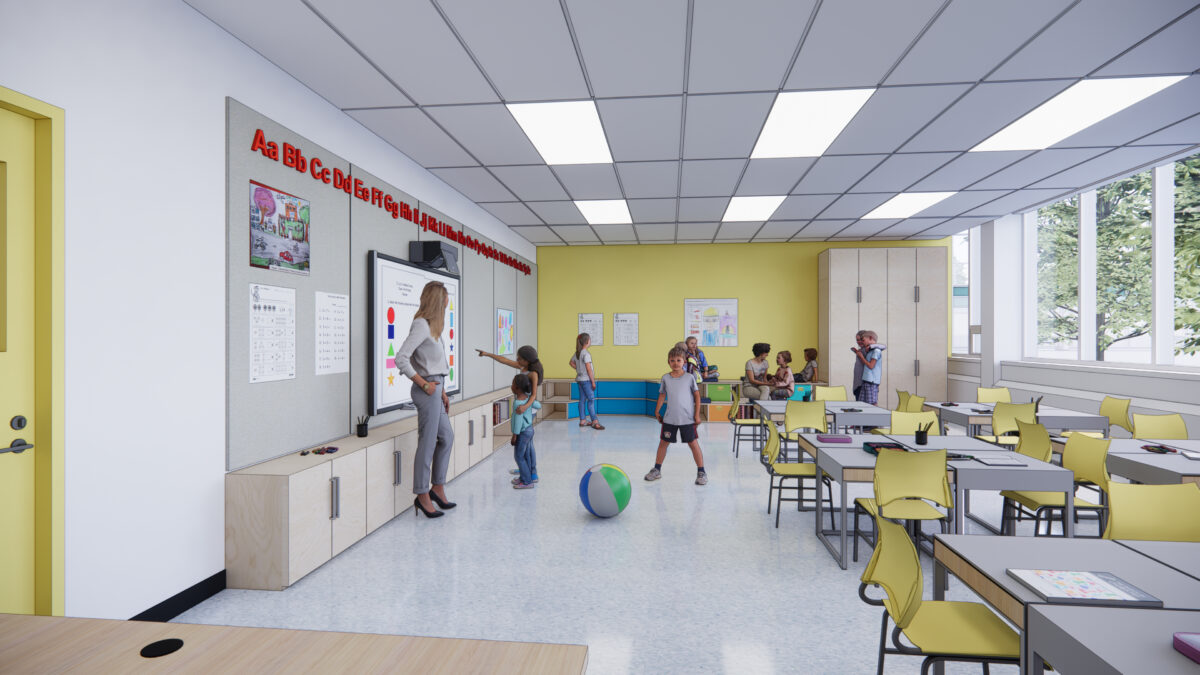
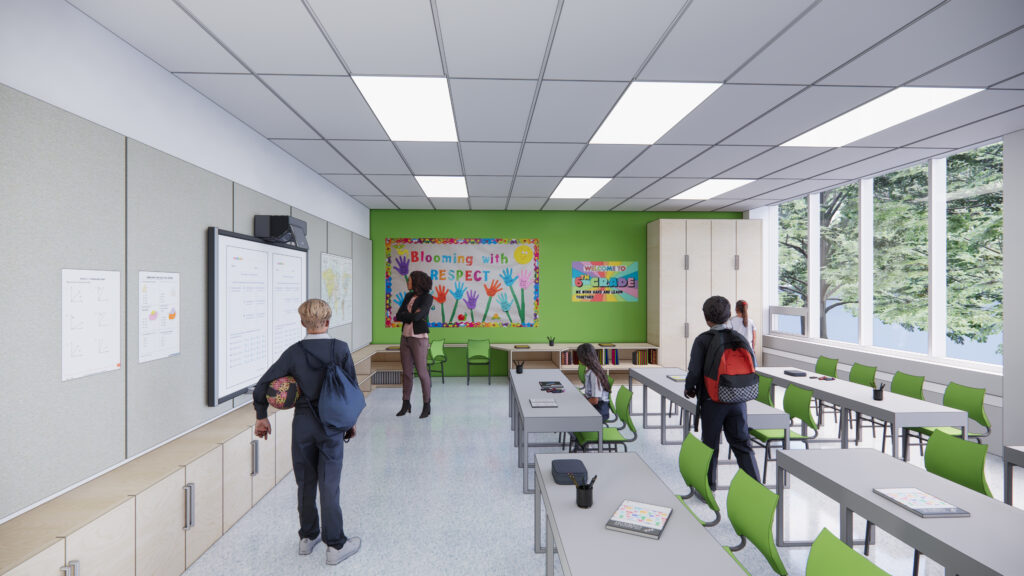
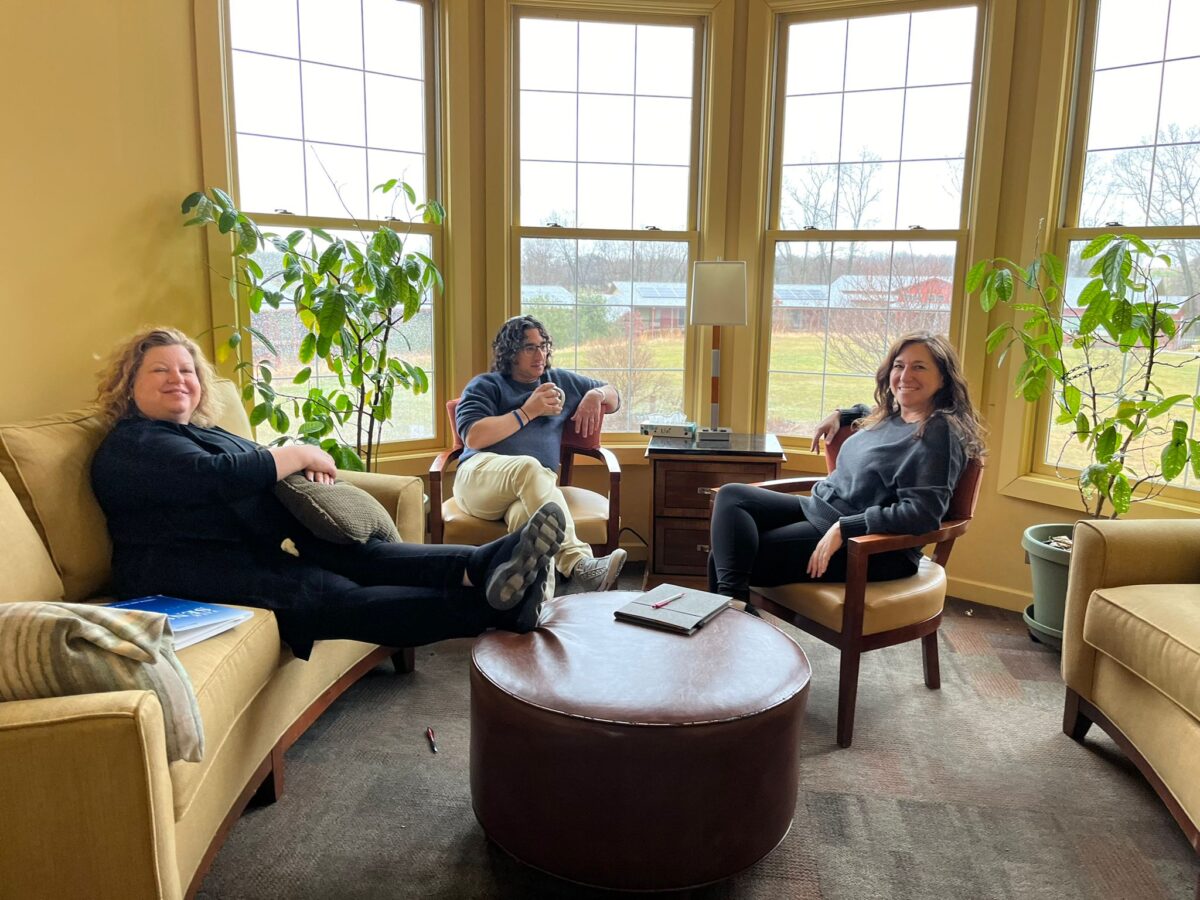
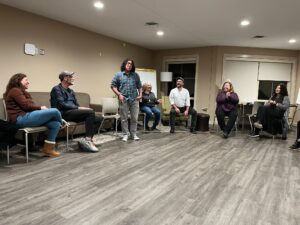 I had the opportunity this week to facilitate a
I had the opportunity this week to facilitate a 
